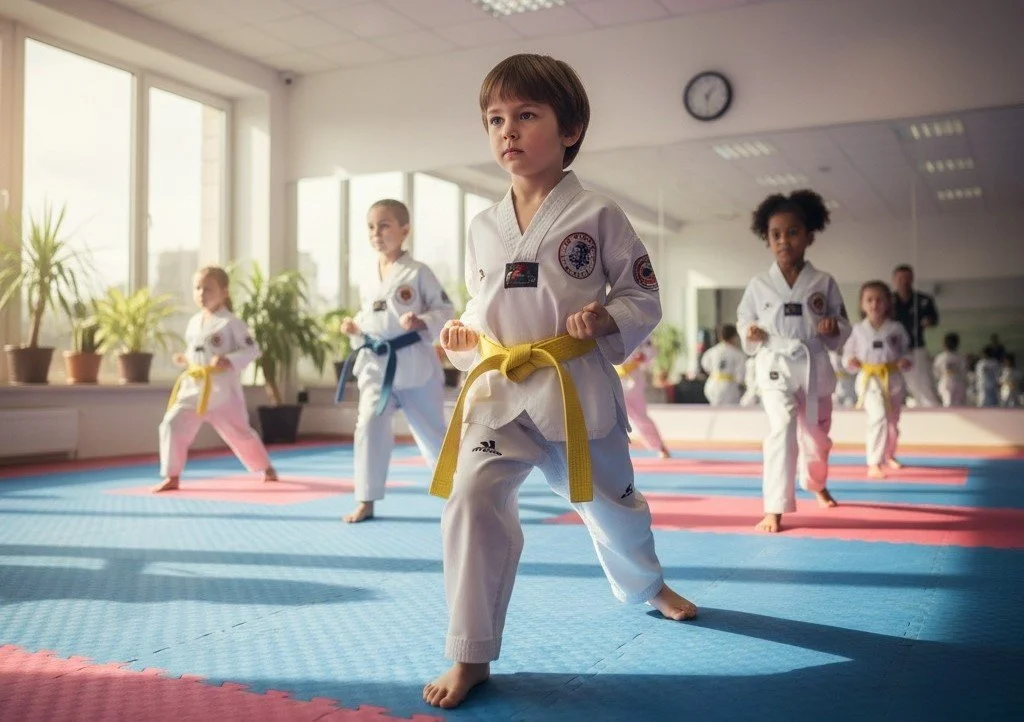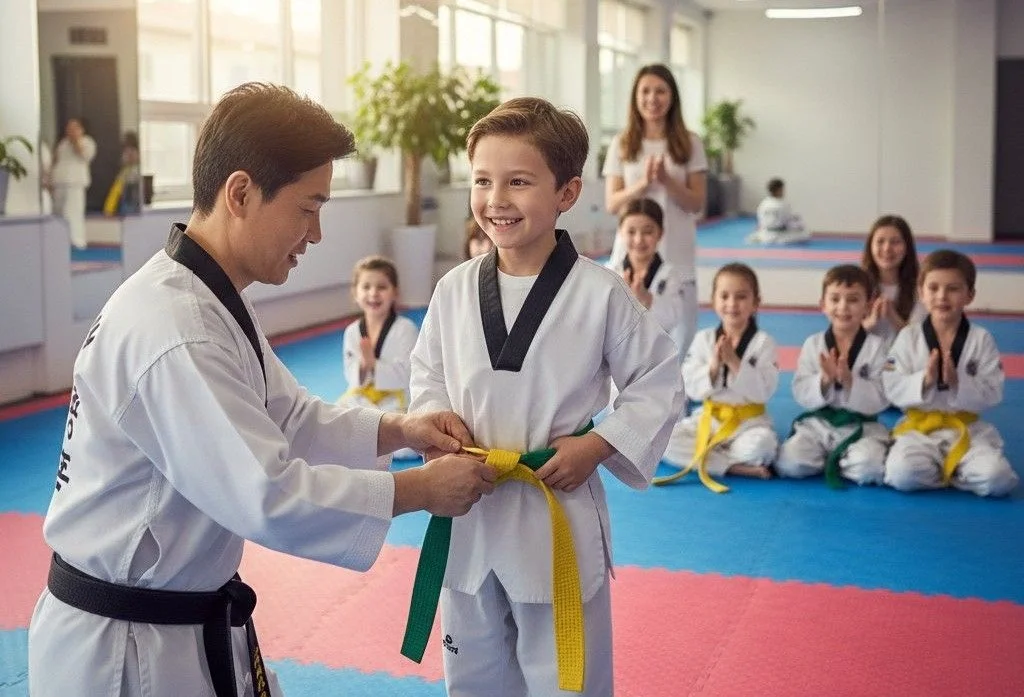Why Self-Control and Patience Are Essential Skills for Young Learners
Self-control and patience are more than just good things to have. They are key life skills that help children grow into people who are able, sure of themselves, and kind to others. When there is steady practice, students do not just get better at their skills. They also learn how to handle how they feel, keep calm when things get tough, and stop to think before they act. This strong base helps them deal with school, friends, and new problems later on with more ease.
Why Do Patience Skills Matter for Kids?
Patience is very important for young learners. Each time a child waits for their turn in class, holds a pose a bit longer, or tries a new drill, they practice sticking with it. Patience shows kids how to:
Stay calm when they feel upset
Complete one task without hurrying just to finish
Watch and learn from people in the group and the teacher
Keep going even if it feels like things are not moving fast
In martial arts training, kids learn to be patient. They start to see that when they stay calm, things work out better. This happens when they try to put together a kick combo or work on a school puzzle.
How Does Self-Control Shape Daily Life?
Self-control means you make smart choices. You do not act quickly without thinking. In class, the teacher asks young students to listen, be kind to others, and stick to their goals. These lessons may feel small, but they matter. They help build habits for life, both inside and out of the dojo:
Thinking before you act when you feel upset
Staying focused even when things try to distract you
Making good friendships that last and have respect
When students take part in role-play for real-life situations, practice self-control in group drills, and learn how to answer with respect, they build up their emotional control. This also helps to increase their social awareness.
Does Consistent Practice Build Lasting Confidence?
Yes, this is true. Discipline is the key to trying and doing well. When students practice a lot, they get better at it. This can make self-confidence in kids grow for sure. Every time a child gets a new belt or learns a new skill, they feel brave to:
Take the lead when we do group work.
Go for new things and do not be afraid to fail.
Speak up and let people know what you think, but do it in a polite way.
This mix of being sure of themselves and staying on track helps them do well, not just in school, but in other parts of life too.
Simple Ways to Practice at Home
Parents and teachers can help kids build self-control and patience in daily life. Some simple and regular ways to do this are:
Take turns when you play games or talk with others.
Use deep breathing or take quiet moments to feel calm and aware.
Break big tasks into smaller steps that you can handle.
Set small goals and show how waiting can help get better results.
These everyday habits help kids remember what they learn in class. They use patience in day-to-day life. Kids also learn to handle real problems better.
How Do These Skills Carry Into the Real World?
The benefits of these life skills go beyond growing as a person. In programs like children’s self-defence classes, kids use patience and self-control. They learn to stay calm when things get tough. Kids follow instructions even if it is hard. They learn how to think about what others feel at any age. They also get real safety skills that help in school, with friends, and at home. These skills help kids keep going even when life is hard.
Helping Kids Grow Into Confident Leaders
At Fort ATA Martial Arts, kids get help and practice through a caring and organized way of learning. This lets them grow patience, learn to lead themselves, and feel sure about what they do. Sign up now to help your child get what they need to do well in school and everywhere else.




